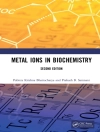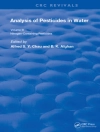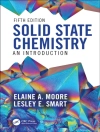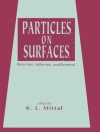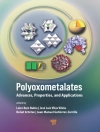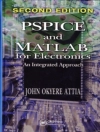Filling a gap in the literature for a practical approach to the topic, this book is unique in including a whole section of case studies presenting a wide range of applications from polymerization reactors and bioreactors, to distillation column and complex fluid catalytic cracking units. A section of general tuning guidelines of MPC is also present.These thus aid readers in facilitating the implementation of MPC in process engineering and automation. At the same time many theoretical, computational and implementation aspects of model-based control are explained, with a look at both linear and nonlinear model predictive control. Each chapter presents details related to the modeling of the process as well as the implementation of different model-based control approaches, and there is also a discussion of both the dynamic behaviour and the economics of industrial processes and plants. The book is unique in the broad coverage of different model based control strategies and in the variety of applications presented. A special merit of the book is in the included library of dynamic models of several industrially relevant processes, which can be used by both the industrial and academic community to study and implement advanced control strategies.
Tabla de materias
INTRODUCTION
Introductory Concepts of Process Control
Advanced Process Control Techniques
MODEL PREDICTIVE CONTROL
Internal Model Control
Linear Model Predictive Control
Nonlinear Model Predictive Control
MPC General Tuning Guidelines
CASE STUDIES
Productivity Optimization and Nonlinear Model – Predictive Control of a PVC Batch Reactor
Modeling, Simulation and Control of a Yeast Fermentation Bioreactor
Dynamic Modeling and Control of a High Purity Distillation Column
Practical Implementation of NMPC for a Laboratory Azeotropic Distillation Column
Model Predictive Control of the Fluid Catalytic Cracking Unit
Model Predictive Control of the Drying Process of Electric Insulators
The MPC of Brine Electrolysis Processes
Sobre el autor
Professor Paul Serban Agachi graduated 1970 in Control Engineering at the Politehnica University of Bucharest and obtained his Ph.D. in Chemical Engineering from the University for Petroleum & Gas in Ploiesti, Romania. His professional experience ranges from design engineer and system analyst in process control design to researcher in fuel cells, process modeling, optimization and control, and also professor of process control at the Department of Chemical Engineering of Babes-Bolyai University, Cluj-Napoca. He was visiting associate at California Institute of Technology, invited professor at Eötvös Lorand University, UNESCO Higher Education consultant, member of the Academy of Technical Sciences of Romania, chair of CAPE Forum 2005, and co-chair of ESCAPE 17. He has published 7 books and 85 scientific papers.
Zoltán K. Nagy received his M.S. and Ph.D. degrees in chemical engineering from Babes-Bolyai University of Cluj-Napoca in 1995 and 2001, respectively, where is currently working. Between 1999 and 2005 he was research associate and visiting lecturer in different international research teams, e.g., at ETH Zürich, the University of Heidelberg, the University of Stuttgart, and the University of Illinois at Urbana-Champaign. He worked on industrial implementation of model-based control strategies with companies such as BASF and ABB, and has published over 60 papers in the field.
Cristea Vasile Mircea graduated the Faculty of Electrotechnics, Romania, with specialization on process control and computer science and holds a Ph.D. degree in process control. After 8 years spent in industry he is at present Associate Professor at Babes-Bolyai University, Cluj-Napoca; his interests lie in systems theory, chemical process control, advanced process control, data acquisition and control, linear and nonlinear model based predictive control, and fuzzy control. He was director of CNCSIS Projects and has published 3 books as well as over 55 scientific papers.
Arpad Imre-Lucaci received his M.S. and Ph.D. degrees in chemical engineering from Babes-Bolyai University of Cluj-Napoca in 1985 and 1999, respectively. Since 1988 he has worked in the Chemical Engineering Department of BBU Cluj-Napoca, Romania, and spent research stays at University of Stuttgart (1994) and ETH Zürich (in 2002 and 2003). His main research fields are mathematical modeling, simulation and optimization in process industries, on which he has published over 20 scientific papers.


